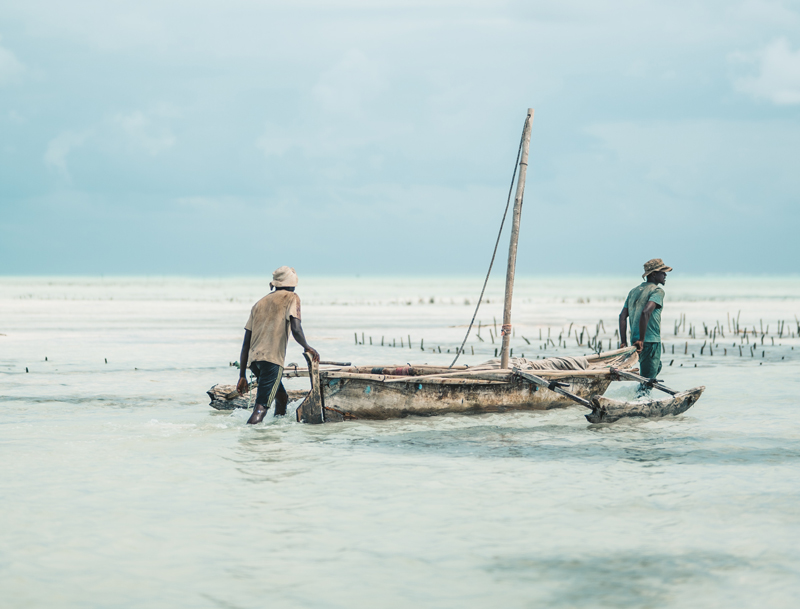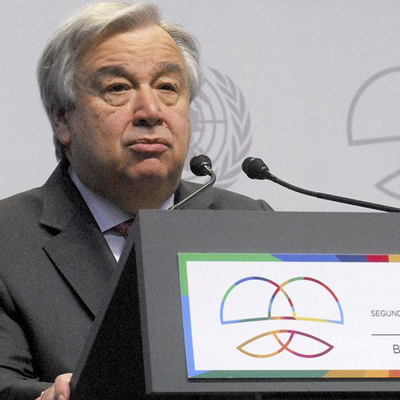The Vital Role of South-South Cooperation and Its Importance for the Summit of the Future
August 12, 2023

August 12, 2023

The Summit of the Future in 2024 aims to reaffirm the global commitment to the multilateral system, and Member States are expected to adopt an action-oriented Pact for the Future as an outcome. In a time when countries are not focused on the kinds of collective actions that are needed to deal with the major global shocks the world has faced in recent years, this possible outcome must go beyond reaffirming existing commitments and rescue the 2030 Agenda for Sustainable Development after years of scant progress in achieving all SDGs, for which South-South cooperation can play a vital role.
South-South cooperation is a modality of cooperation in which Southern countries establish horizontal partnerships for the sharing of knowledge, training, technology, and expertise, in order to facilitate development. It is guided by specific principles, such as respect for national sovereignty, national ownership and independence, equality, non-conditionality, non-interference in domestic affairs, demand-driven and mutual benefit.
Some of these principles, such as national sovereignty and non-interference, are dated from the 1970s and embodied the context of the Cold War. However, in the XXI century, Southern countries realized that global development challenges required broader governance principles, based on the pooling of knowledge and resources. In this sense, South-South cooperation currently entails solidarity as a value, and capacity-building as an operational practice, both components which are greatly missing in multilateral action today and must be reinforced in the Summit of the Future.
As part of the preparatory work for the summit, the UN Secretary-General Antonio Guterres has issued policy briefs on eleven areas of potential action, from future generations to a new agenda for peace. Two of these areas – better responding to global shocks and reforming the international financial architecture – could benefit from a South-South cooperation approach, considering the relevance of this modality as an efficient means of implementing the 2030 Agenda.

On the path to negotiating the 2030 Agenda, Southern countries advocated for the inclusion of South-South cooperation as a means of implementation. Under SDG 17 – “Strengthen the means of implementation and revitalize the Global Partnership for Sustainable Development”, the 2030 Agenda contemplates South-South cooperation in the targets related to technology transfer (target 17.6) and capacity-building for development (target 17.9). These targets recognize that Southern technology and development solutions are critical to the process of sharing knowledge and enhancing local capacities for the achievement of the SDGs in the years to come.
South-South cooperation offers three advantages as a means of implementation of the 2030 Agenda:
Aware of the effectiveness of South-South cooperation in the attainment of the 2030 Agenda, the UN annually observes its International Day for South-South Cooperation on 12 September to renew its commitment towards making this modality better known by UN scholars and practitioners. The Summit of the Future is a crucial opportunity to upscale multilateral action towards strengthening the Global South to keep up with the 2030 Agenda.
Considering the devastating impact of the COVID-19 pandemic in undermining progress on the SDGs, especially in eradicating poverty and hunger, Secretary-General Antonio Guterres proposed the creation of an emergency platform as an outcome of the Summit of the Future. This new mechanism would entail a set of protocols to be activated during global shocks – such as another pandemic, economic crises, climate crises, and other major global disruptions –, so the multilateral system could better respond to these challenges without jeopardizing the progress of global goals.
The Secretary-General called for “a multidisciplinary, multi-stakeholder approach that can enable us to better respond to future, complex global shocks”, and South-South cooperation could significantly contribute to this new approach since it encompasses multidimensional and multisectoral responses for multilateral action and collective results. Through knowledge-sharing and peer learning, South-South cooperation facilitates the identification of common development problems and the proposal of solutions that are responsive to the specific context and needs of Southern countries, resulting in a more significant development impact.
Unsurprisingly, there was a surge in South-South cooperation projects during the COVID-19 pandemic, not only because Southern countries were hit harder by it but also because they were left behind in most of the pandemic responses, especially in the vaccine rollout. South-South cooperation was crucial to harness solidarity and partnerships for the sharing of technical expertise, good practices, and knowledge in responding to COVID-19, mitigating the social and economic impacts of the pandemic, and ensuring access to vaccines among Southern countries.
One successful example during the pandemic was the launch of the South-South Galaxy Mapping of Southern Response to the COVID-19 Pandemic, in March 2020. This is an online dynamic mechanism that mapped the responses of Southern health authorities to the pandemic and promoted the exchange of information and practices. Southern countries could both share good practices to respond to the pandemic or request support to solve a specific issue. It worked as an efficient broker platform, connecting stakeholders to exchange solutions and lessons learned from previous and current pandemics that could be replicated as a response to the pandemic.
Considering the pool of best practices during the pandemic, South-South cooperation can greatly contribute as a means of implementation of a future emergency platform, so its protocol and mechanisms could better respond both to upcoming global shocks and attaining goal goals.
The current international financial architecture is inadequate to respond to the development challenges of our time, such as climate change, systemic risks, and extreme inequality. On one hand, the international financial system imposes high borrowing costs and low access to liquidity to Southern countries, especially in times of crisis. On the other hand, international concessional public finance falls short of the needs of the 2030 Agenda. Northern donors have historically not met their Official Development Assistance (ODA) commitments and focus on non-core (earmarked) contributions. This funding pattern has undermined the implementation of the 2030 Agenda and increased its fragmentation.
Secretary-General Antonio Guterres advocated for a reform of the international financial architecture as another outcome of the Summit of the Future in order to support the implementation of the SDGs with sustainable sources of funding. For the Secretary-General, “the international system must scale up both concessional and non-concessional affordable and long-term financing for the Goals and climate action”.
The role of multilateral and regional development banks and funds from the Global South is essential to reorient the allocation of concessional finance for the attainment of the SDGs. South-South cooperation is expanding faster than traditional forms of bilateral and multilateral finance in relative terms, focusing on capacity-building and infrastructure, technology development and transfer, and climate adaptation. Besides, South-South cooperation is advancing new forms of development financing, such as co-financing and blended multi-stakeholder financial instruments, with a diversity and plurality of actors and partnerships.
South-led multilateral development banks increased their loan portfolios ten times in 20 years, from US$ 7.2 billion in 2000 to $73.4 billion in 2021. They also promoted innovative financial instruments. For example, in 2021, the West African Development Bank issued the first sustainability bond in Africa to fund non-commercial SDG-related projects in the region. As for blended multi-stakeholder finance, since 2014 the Finance Center for South-South Cooperation (FCSSC), an NGO based in Hong Kong and with consultative status with ECOSOC, works as a hub for governments, the private sector and international organizations to mobilize funds to the implementation of the SDGs.
South-South cooperation finance aims at harnessing and exchanging Southern technologies, knowledge, and solutions, which speeds up SDG delivery and reduces implementation and transaction costs. It offers a significant complement to the international financial architecture and is an essential part of the global governance strengthening proposed by the Summit of the Future.
If the Summit of the Future intends to make a real impact in the multilateral system, the UN needs to go beyond renewing commitments…
If the Summit of the Future intends to make a real impact in the multilateral system, the UN needs to go beyond renewing commitments and focus on more efficient means of implementation of the 2030 Agenda. For that, it is essential to recognize the value-added of South-South cooperation since this modality is still greatly unknown and overlooked in UN negotiations. The fact that South-South cooperation is not mentioned in the Secretary-General’s Our Common Agenda and the “Rescue plan for people and planet” report is a symptom of how it is underestimated as a means of implementation.
The UN has provided multiple evidence of how the distinctive features of South-South cooperation have contributed to the advancement of the 2030 Agenda because it facilitates the creation of solutions that are not just a mere transfer of funds or ready-made policies. It allows a process of peer learning and partnership that results in greater resilience against global shocks and innovative ways of long-term financing that foster national ownership of development processes. This is the kind of solidarity and global commitment that the Summit of the Future must achieve, so it cannot miss the opportunity to improve its understanding of South-South cooperation and utilize it to its full potential.
Written by Patrícia Nogueira Rinaldi
2020 Global Governance Forum Inc. All Rights Reserved